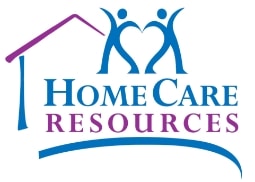Dementia occurs when someone has difficulty:
- Thinking
- Problem-solving
- Reasoning
- Remembering
- Using or understanding language
Dementia can be caused by a number of different diseases or health conditions. The most common cause of dementia is Alzheimer’s disease. The second most common cause is vascular dementia.

Blood Vessels Feed Brain Cells with Oxygen and Nutrients
Vascular dementia occurs when the brain is damaged due to reduced blood flow. When blood can’t reach brain cells to deliver oxygen and nutrients, those cells die and brain function may be affected. Blood flow interruption is usually due to small blood vessels becoming blocked (with cholesterol or blood clots, for example) or when blood vessels break or leak.
Strokes can Cause Vascular Dementia
Strokes most often occur as a result of a blood vessel being blocked by a blood clot. Blood clots can form in the heart of a person with heart disease. Depending on how many brain cells are damaged, where they are, and how long the blood supply is cut off, the severity of the stroke may vary. It may be relatively minor, with few lasting noticeable effects, or it may be very severe.
Strokes can cause weakness or paralysis on one side of the body, as well as other effects, including, in some cases, dementia. Dementia symptoms may occur straight away, or they may develop in the months following the stroke, a condition known as post-stroke dementia.
TIAs
Sometimes called “mini-strokes”, transient ischaemic attacks (TIAs) can sometimes go unnoticed. Symptoms are much milder than major strokes, and any typically clear up within 24 hours. However, they still do damage to the brain. If the damage occurs in a particularly critical part of the brain, it can interfere with brain functioning, and is called single-infarct dementia. Multi-infarct dementia occurs as the result of cumulative damage to the brain caused by multiple mini-strokes over time.
Mixed Dementia
Around 10 percent of seniors with dementia are diagnosed with both Alzheimer’s disease and vascular dementia in a condition known as mixed dementia, with symptoms of each generally present in some combination.
Symptoms of Vascular Dementia
Vascular dementia tends to get worse over time. Symptoms may include:
- Difficulty with solving problems, organization, decision making or following a sequence (such as following a recipe or preparing a meal)
- Slower thinking
- Difficulty concentrating
- Periods of confusion
- Memory loss
- Difficulty speaking
- Changes in visual perception
- Mood changes or sudden mood swings
- Behavior changes
- Strongly believing untrue thoughts (delusions)
Eventually the senior may need assistance with dressing, bathing, eating, using the toilet and mobility.
Home Care can Help Seniors with Vascular Dementia and their Family Caregivers
Some seniors with vascular dementia are able to retain most of their independence, requiring just minimal support, if any. Others may require quite a bit of help from multiple team members, which may include home care aides, family caregivers, and others.
Home care aides can assist with transportation, shopping, meal preparation, pet care and light housekeeping, among many other things, which can enable a senior with vascular dementia to function at their best. Home care aides can also assist seniors with regular exercise, mental and social stimulation. They can assist seniors to participate in their favorite activities, or engage in daily pursuits that they feel are meaningful, important, or rewarding.
Home care can also offer family caregivers respite opportunities, which experts agree are vital for maintaining a successful long-term caregiving situation.
If you or an aging loved-one are considering hiring Elderly Care in Wadell, AZ, please contact the caring staff at Home Care Resources at (602) 443-4700
Sources
https://www.alzheimers.org.uk/
https://www.alzheimers.org.uk/
- Six Warning Signs of Diabetes to Watch for in Seniors with Dementia - May 19, 2025
- Understanding Chronic Conditions in Seniors: The Importance of Support - May 9, 2025
- Helping Your Elderly Loved One Maintain Healthy Vision - April 24, 2025




